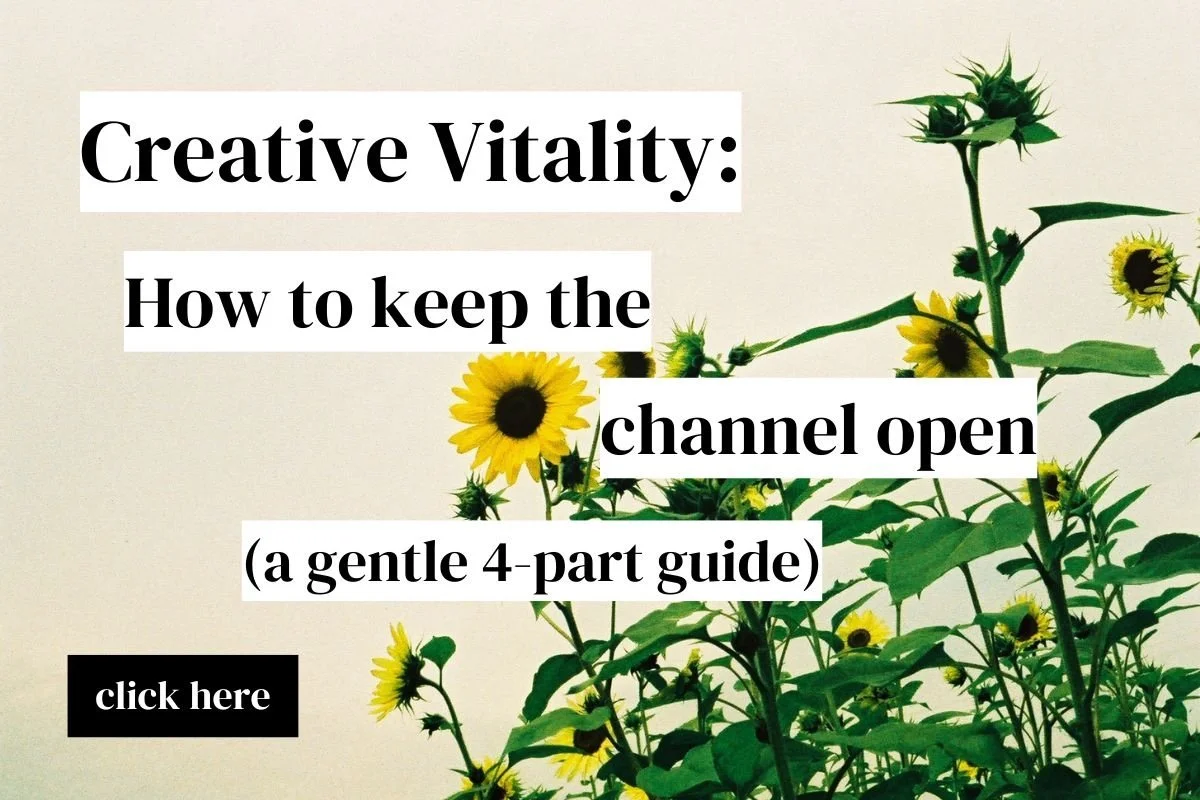On authenticity
I met with a new client earlier this week. She’s working on a novel that pulls heavily from personal experience, which means she’s navigating what so many non-fiction writers must face: the blurry line between writing as craft, and writing as personal expression; the creation of good sentences alongside a pursuit that brings self-discovery and healing.
That line isn’t always clear—and I’m not sure it needs to be. When we’re crafting something personal, the boundaries between fiction and truth can’t help but be opaque. And that blurriness can either be disorienting…or liberating.
During our conversation, my client and I kept circling one big word: “authenticity.” What does it mean to be authentic in our work, especially when our real lives are our primary source material? What do we owe to the “truth”?
And which truth, exactly, are we talking about?
~~~
Here’s what I believe:
The writer’s task—no matter the genre—is one of translation. Whether we’re writing fiction, memoir, poetry, or something more hybrid, we are always taking something complex and multi-dimensional, something that accumulates over time, and then filtering it through the compressed form of words. Language is not the thing itself. A scene is not a memory. A character is not a person, and a story told on the page is not the life it comes from. The successful writer isn’t necessarily turning language into a living, breathing object, but using language to create a felt experience—an intellectual one, an emotional one—that transports the reader.
Us writers, no matter how devoted we are to Truth, are always making choices. Always leaving things out. Always—whether we admit it or not—making things up.
This isn’t a flaw, but a condition of being an artist.
Here’s Virginia Woolf talking about this very thing nearly 100 years ago:
“At any rate, when a subject is highly controversial—and any question about sex is that—one cannot hope to tell the truth. One can only show how one came to hold whatever opinion one does hold. One can only give one’s audience the chance of drawing their own conclusions as they observe the limitations, the prejudices, the idiosyncrasies of the speaker. Fiction here is likely to contain more truth than fact.”
Memory is porous. Sensation and meaning have a way of lingering, or growing strange, or becoming diffuse. And Woolf knew that idiosyncrasy, context, and mood matter more than rote accuracy.
~~~
It’s a funny argument I’m making here, given that authenticity is one of my two primary values. (The other one: reciprocity.) It guides me in my communication, my friendships, my work ethic—and, yes, in my creative writing.
But I don’t believe “authenticity” is the same thing as “objectivity,” partly because I’m not sure I believe the latter really exists. And though authenticity is very real, I believe it’s something most accurately approached (to conjure another wise historical woman) at a slant. “Truth must dazzle gradually,” Emily Dickinson wrote one generation before Woolf, and I think she’s partly talking about digestibility: how we must present our words to the reader in a way that they can actually receive them.
Our loyalty, therefore, is not to the question, “how did it really happen,” which can limit and bind our storytelling.
Instead we must ask: How did it feel? What did it change in me? What echoes did it leave behind?
What I want you to know today:
You are allowed to write toward the complexities, the emotional resonances, and the glimmers—even when they lead you beyond the edges of what really happened.
Because factual fidelity can only take you so far. It’s emotional coherence that really brings a story to life.
